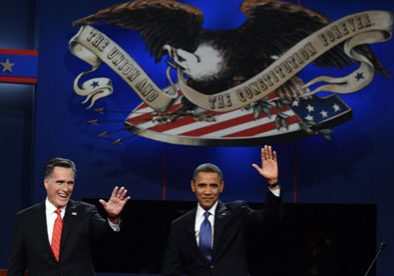
Israeli elections: the doomsday merchants proven wrong
January 29, 2013 | Or Avi Guy
The dust is settling after the election in Israel, and the efforts to establish a stable coalition are well underway. Prior to the election, concerns were raised in the global media and the blogosphere, about the rise of the so-called ultra-nationalist religious right in Israeli politics.
Doomsday-esque predictions about a right wing coalition dominated by the ruling party Likud-Beitenu along with Ha-Bayit Ha-Yehudi (the Jewish Home) and the ultra-Orthodox parties prematurely eulogised the two-state solution, warning against settlement expansion and supposed Israeli reluctance to negotiate.
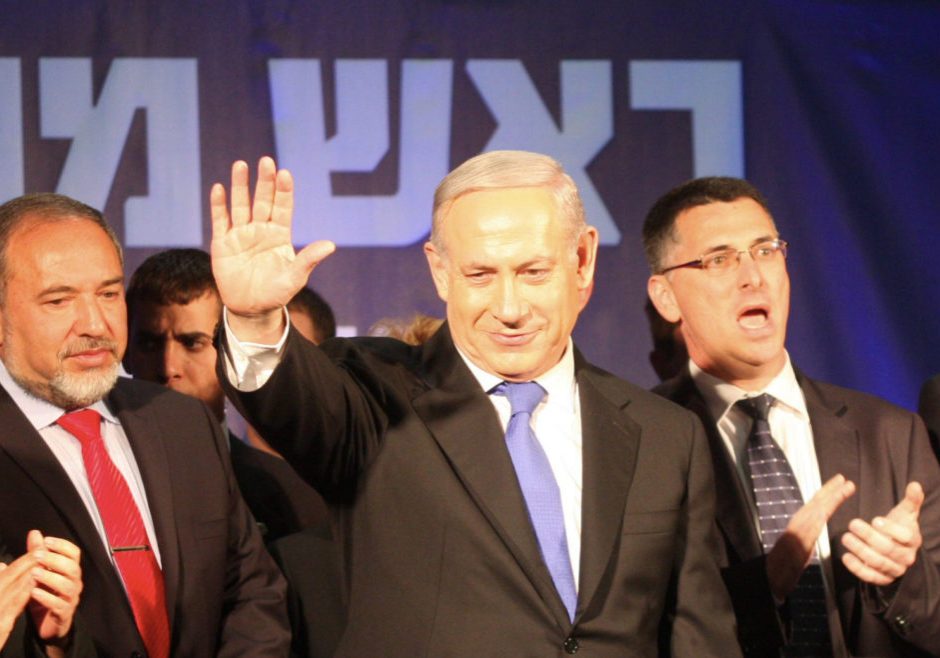
Netanyahu needs friends for action
January 25, 2013 | Colin Rubenstein
This week’s election in Israel has produced a legislature with broad ethnic, gender and ideological diversity, demonstrating yet again the strength and vitality of the Middle East’s first genuine democracy.
Under its proportional representation system, no party in Israeli history has ever received enough seats in the 120-member Knesset (Parliament) to govern on its own and negotiations have commenced to determine the make-up of the coalition government.

‘Undecided’ voters key to the Knesset
January 17, 2013 | Ahron Shapiro
Predicting the outcome of Israeli elections is always tricky, but especially this year, as we witness a late surge by charismatic businessman Naftali Bennett’s Jewish Home party, which is drawing some support away from Prime Minister Binyamin Netanyahu’s Likud Beitenu list.
Meanwhile, the strength of Centre-left and Left-wing parties has been obscured by the large number of undecided voters – almost one in three, according to a recent poll.

Friends and enemies colour BDS ideology
December 28, 2012 | Daniel Meyerowitz-Katz
The head of the Centre for Peace and Conflict Studies (CPACS) at the University of Sydney, Associate Professor Jake Lynch, has received a number of high-profile condemnations over his recent decision to refuse to work with Hebrew University of Jerusalem academic Dan Avnon.
This decision, made in accordance with the Boycott Divestment and Sanctions campaign against Israel – of which Lynch is a strong supporter – was in spite of Avnon’s work, which involves creating a civics program for Jewish and Arab students in Israel in order to work towards reconciliation between the two groups.
On the face of it, Avnon’s work is exactly what Lynch purports to encourage, with the Centre’s mission being to “focus on the resolution of conflict with a view to attaining just societies” and to “facilitate dialogue between individuals, groups or communities who are concerned with conditions of positive peace”.
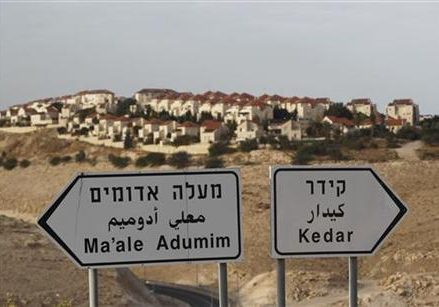
Settlements are not the great obstacle to Mid-East peace
December 20, 2012 | Colin Rubenstein
CLAIMS that Israeli settlement building has made a two-state outcome impossible are completely untrue. Settlements are only one of many contentious issues that must be addressed – along with water, Jerusalem, refugees and security arrangements – and far from the most difficult to resolve.

Carr’s hectoring won’t change Middle East
December 6, 2012 | Colin Rubenstein
It is simply not true that Israel is ”continuously expanding Jewish settlements” and ”creeping towards the de facto creation of a Greater Israel that swallows up the Palestinians and their land” as Peter Hartcher and many of the Labor figures he spoke to for his story on Australia’s vote on the Palestinian bid to be a ”non-member state” at the UN seem to believe (”Right call sees Israel on the outer”, December 4).
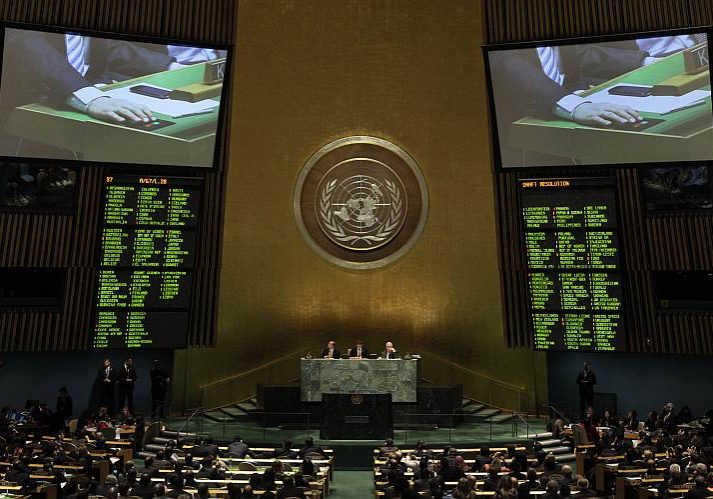
Behind the ‘Palestine’ vote, a paradox
December 6, 2012 | Ahron Shapiro
In order to fully understand all the implications of the upgrade of Palestinian status to non-member observer state at the United Nations, it is worthwhile to begin by revisiting their more ambitious first attempt to bring Palestinian UN membership to a vote in the United Nations Security Council last year.
At the time, Palestinian Authority President Mahmoud Abbas rejected the notion of bringing a resolution to the General Assembly naming “Palestine” a “non-member state” as too weak a gesture – not worth the damage such a move would cause the PA, especially regarding US aid.

Palestine’s spurious UN bid relied on some unsavoury supporters
December 4, 2012 | Daniel Meyerowitz-Katz
“Mr President: independence, freedom, the right to self-determination; these are principles that have been enshrined in the United Nations Charter.” Those words were spoken by Daffa Alla Elhag Ali Osman, the Sudanese Ambassador to the UN as he introduced the draft resolution at the General Assembly to recognise the non-member state of Palestine.
Nothing could better signify the absolute farce taking place before the representatives of the international community than the government of Sudan pontificating about justice and human rights. As Osman spoke, the government that he represents was busy waging a brutal campaign to deny the Nuba people the rights to independence, freedom and self-determination.
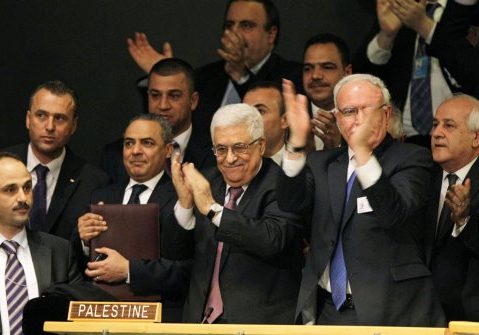
Voting for “lawfare”, not Palestinian statehood
November 30, 2012 | Daniel Meyerowitz-Katz
It appears that Australia chose to abstain from the UN General Assembly’s vote to upgrade the status of the Palestinian delegation from “observer” to “non-member state”. This was reportedly due to lobbying from within the Labor Party – particularly by former foreign minister Gareth Evans – to the effect that Australia would be on the “wrong side of history” if it were to “resist the tide of international sentiment now in favour of recognising Palestinian statehood”.
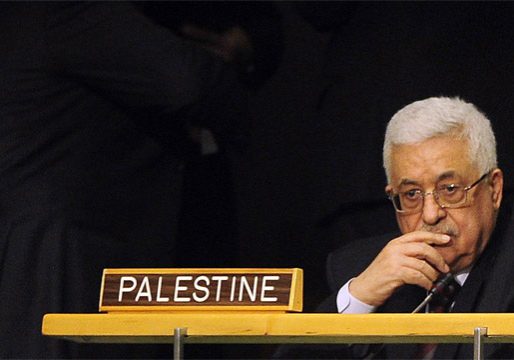
Palestine’s future lies in negotiations with Israel, not UN
November 28, 2012 | Mark Leibler
BARRING a last-minute change of heart, tomorrow the UN General Assembly will vote on upgrading Palestine’s representation in the forum to the status of non-member “observer state”.
On these pages, former foreign minister Gareth Evans (November 24) encouraged Washington, and by implication Australia, to support the measure.
Evans notes, correctly, that the resolution will certainly pass, given the automatic pro-Palestinian majority in the General Assembly, and that it contains little extreme language.
Yet no matter how you sugar-coat it, this resolution is a poison pill for the peace process. It should not be supported by any country that supports the creation of an independent Palestinian state living in peace alongside a secure Israel.
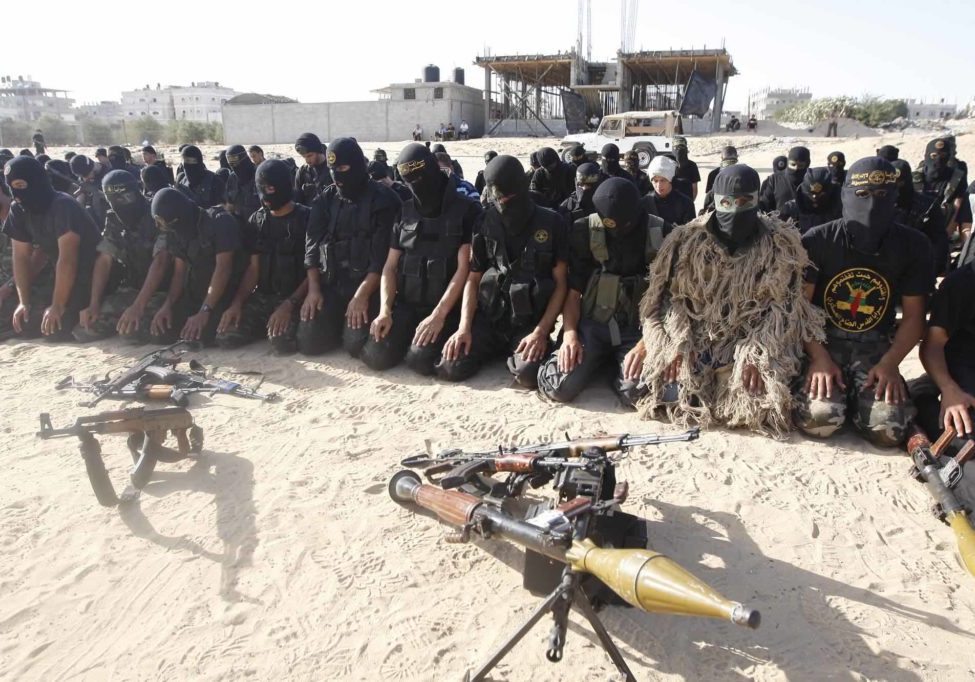
Hamas the real villain in attacks on friends and foe
November 23, 2012 | Sharyn Mittelman
Now the terms of a ceasefire have been agreed upon, Israel hopes this means the rockets from the Gaza Strip will stop, despite the fact rockets have already been fired into Israel from Gaza since the ceasefire came into effect.
But, when a ceasefire was negotiated between Israel and Hamas in 2009, it did not bring an end to rocket attacks on Israel from Gaza. In fact, even before this conflict hundreds of rockets were launched at southern Israel this year alone, disrupting and terrifying the lives of Israelis who had to flee to bomb shelters on a regular basis.

